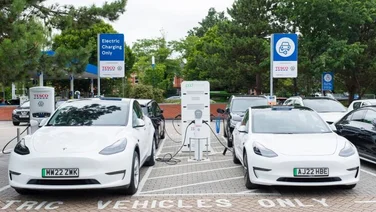- Tripling current solar generation capacity to 60GW by 2030 would significantly reduce energy costs
- Doing so would help the UK reach its clean power goals by 2030
- It would also slash the UK’s reliance on imports of natural gas

Tripling the UK’s current solar generation capacity to 60GW by 2030 would significantly reduce energy costs, according to an academic analysis presented last week by the National Energy System Operator (NESO).
The analysis also found that it would make delivering the UK government’s 2030 clean power goal easier to reach.
A further report by the Durham University Energy Institute found that “doing so while greatly expanding energy storage and flexibility would slash reliance on expensive imports of natural gas”.
However, according to Solar Energy UK, these benefits would be lost if the government relies too heavily on out-of-date assumptions, and doing so “would stifle the growth of cheap, clean solar power”.
The NESO reported two scenarios, which both explored the UK reaching 47.4GW of solar capacity by 2030.
But the model – that is similar to the UK’s electricity system – found that expanding this goal to 60GW would result in 12% lower costs.
Chris Hewett, chief executive, Solar Energy UK, said solar and batteries offer the government “a huge opportunity” to speed up its mission to deliver clean power.
“Setting a goal to triple solar to 60GW, rather than a de facto cap implied by the NESO advice, will deliver the lowest cost home grown energy and thousands of secure jobs,” Hewett claimed.
On the back of the report, Solar Energy has created their own projection, founded on “more reliable information than used by NESO,” the trade body reported.
It found:
- The two NESO scenarios share a baseline of only 15.1GW of solar capacity being in place last year. Our data shows the true figure for the end of 2024 to be close to 20GW.
- The report failed to consider Government plans to bolster generation on the roots of homes and businesses, via the Warm Homes Fund, GB Energy, the Local Power Plan, the Future Homes Standard, Future Buildings Standard and retrofitting public buildings.
- A regional breakdown of anticipated solar capacity fails to reflect where projects are being developed. This could result in the industry being asked to build solar farms in places that are not commercially viable, cannot be connected readily to the electricity grid, or where appropriate land is unavailable. It could also result in consented projects not being built.
Hewett continued: “We entirely agree that the grid connection process must change, as projects can get stuck in a queue for many years. But this needs to be done in a way that will allow ‘ready-to-build’ renewable energy to deliver this decade.”






